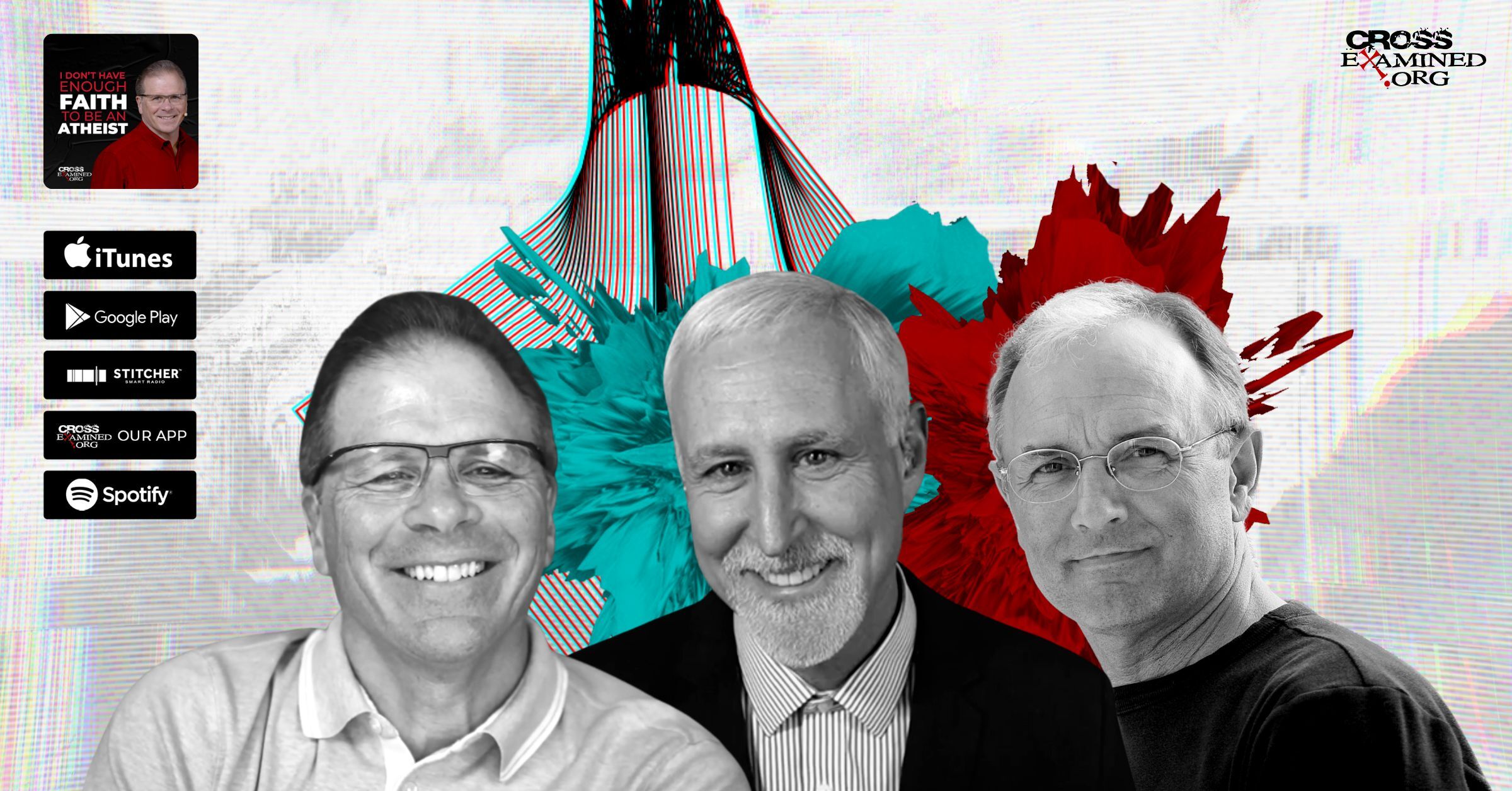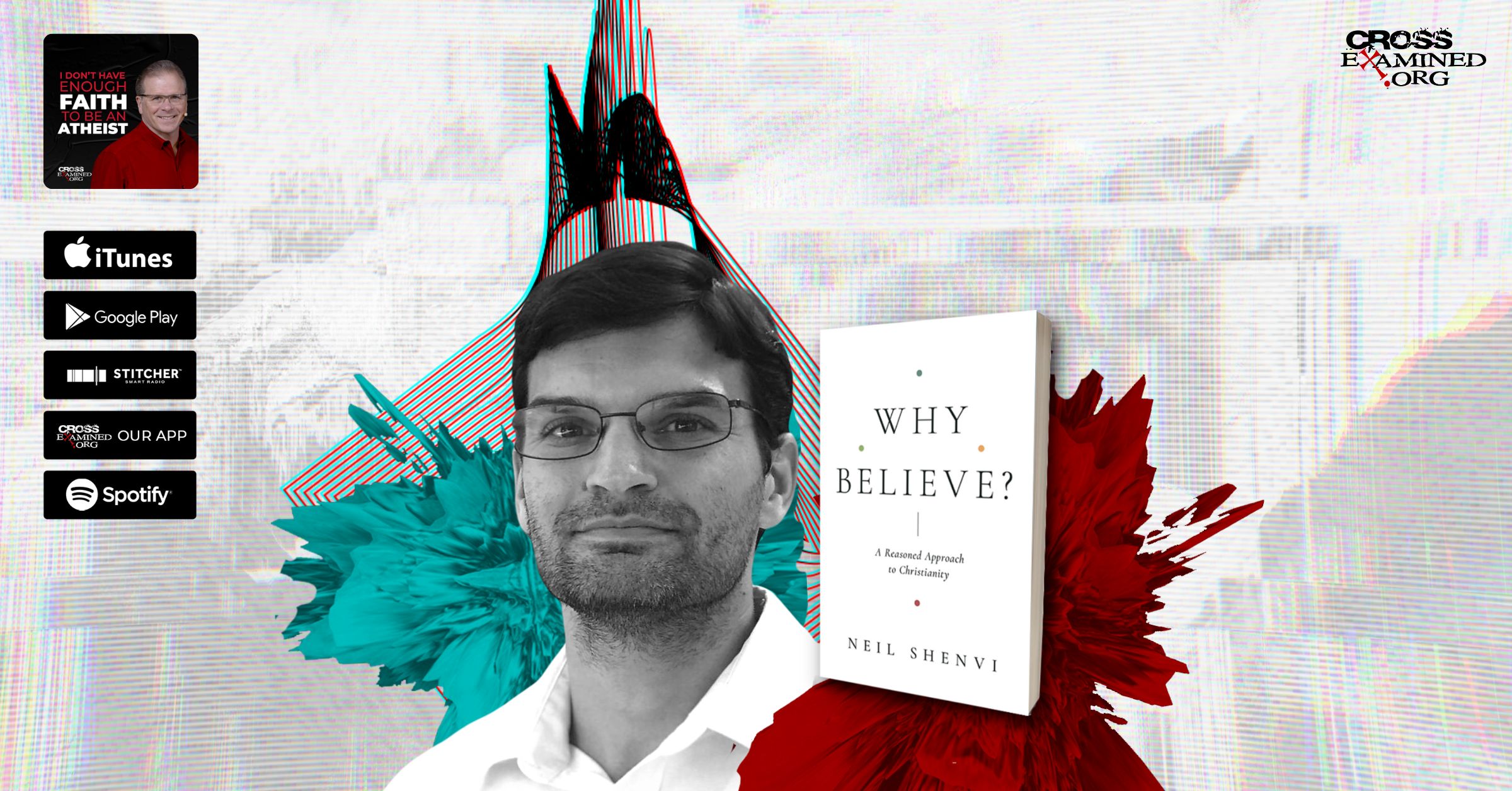many people throughout history and across the world have claimed to have seen UFOs and even have experiences with what are normally described as aliens. I’ve always had a casual interest in UFOs, but with the release of three Navy videos and the Unidentified documentary, I became more interested.
It is probably safe to say that most people think that talk of UFOs and aliens is crazy; however, the evidence for such phenomena has been mounting to the point that the existence of UFOs is beyond question. This article will look at a brief history of UFOs, focusing mostly on the U.S., some of the claims people have made, an examination of prominent theories of what is going on, and an overall assessment.
A VERY BRIEF HISTORY OF UFOLOGY (MAINLY IN THE U.S.)
It is popular to begin modern ufology (the study of all things UFOs) with Kenneth Arnold’s sighting of 9 objects flying, according to him, around 1700mph at Mt. Ranier, WA in June of 1947. Such was not actually the beginning of UFO sightings, even in the U.S. There was a massive wave of sightings (a wave of sightings is called a flap) around the country in the late 1890s of “airships.” Further, reported UFO activity (to include abductions) has gone on for millennia. (See Wonders in the Sky: Unexplained Aerial Objects from Antiquity to Modern Times by Jacques Vallée and Chris Aubeck for a good history of ufology. Also, see Vallée’s Passport to Magonia: From Folklore to Flying Saucers for an explanation of how the modern UFO phenomena is very similar to religion and folklore of the past.)
About a month after Arnold’s sighting was the famous Roswell incident where at least one UFO supposedly crashed around Roswell, NM. The Air Force first said it was a “disk” but just hours later said it was a weather balloon. In 1994, the Air Force published The Roswell Report: Case Closed where they reported that what actually fell was a balloon related to the secret project called Project Mogul, which was a way of spying on the USSR’s use of atomic weapons. (The Roswell Legacy: The Untold Story of the First Military Officer at the 1947 Crash Site argues that what fell at Roswell was an actual UFO with aliens and is told by the son of the intelligence officer who was there and allegedly brought some wreckage home to show his family. UFO Crash at Roswell: The Genesis of a Modern Myth is an appraisal from a non-believer.)
Numerous UFO sightings that year led to the newly formed Air Force (formed in September of 1947) to begin a series of special projects to study the issue. The first was Project Sign in 1947, followed by Project Grudge in 1949, and then the famous Project Blue Book in 1952 that lasted until early 1970 (it was announced closed in December of ’69). The Report on Unidentified Flying Objects by Captain Edward Ruppelt, who led Project Grudge and Blue Book from 1951-1953, is required reading for anyone interested in the history of UFOs, especially as it relates to the Air Force, as is The UFO Experience by Air Force astronomy consultant J. Allen Hynek.
There was a flap in 1952 over Washington D.C. that led to the CIA becoming interested. In January of 1953 it held a panel in conjunction with the Air Force, informally called the Robertson panel. It officially concluded that UFOs were not an issue of national security, but it is disputed as to whether the Air Force really gave them the good files to examine. Many other sightings occurred in the 50s and 60s, including the well-known Malmstrom Air Force Base (AFB) incident where UFOs were seen over the nuclear ICBM missile sites when 20 ICBMs went offline. For that account from an eyewitness who served as an officer in the missile silo, see Faded Giant.
In the late 1960s the government gave The University of Colorado a grant to independently investigate UFOs. It was headed by Edward Condon and is informally known as the Condon Committee. It is well-known to have been biased against UFOs from the beginning, at least by the leader, and it recommended Blue Book be shut down, which it was.
Sightings continued through the 70s and 80s worldwide. Pilots in Iran chased a UFO and one in Peru shot at one. All to no avail. (It is reported by Ruppelt that in 1952 a U.S. Air Force pilot shot at one.) One of the most notable cases was the event that happened at RAF Bentwaters and Woodbridge in the U.K. in December of 1980. Several security police and others, including then the Deputy Base Commander, Lt Col Halt, saw UFOs. One claims to have actually touched it. This has been one of the most interesting and controversial cases ever. For a good source on this that was written by eyewitnesses, see Encounter in Rendlesham Forest: The Inside Story of the World’s Best-Documented UFO Incident.
2004 ushered in a new era with the now famous, and aforementioned, Navy videos. In August of 2020, the military started an Unidentified Aerial Phenomena Task Force (UAPTF). In June of 2021, the Office of the Director of National Security provided a “Preliminary Assessment” to Congress. It stated that UFOs (or as the military now calls them, UAPs) are real and in 144 cases, unexplained. In July of 2022, top members of the intelligence community testified before Congress for the first time in over 50 years, also confirming the existence of UFOs and confirming that what the Navy videos show are still unexplained. The government has never claimed they are of extraterrestrial origin. It is well-known that the government is taking UFOs seriously, even if they (reportedly) don’t believe they are aliens.
For an excellent, but very detailed history of UFOs in the U.S. (from one who holds to the extraterrestrial view) see Richard Dolan’s 2 volume UFOs and the National Security State. For a less-detailed but good account from a skeptic’s viewpoint, see Curtis Peebles’ Watch the Skies! For an intriguing and important overview of UFOs as they relate to the military, see Leslie Kean’s UFOs: Generals, Pilots and Government Officials Go on the Record. For an excellent historical source in general, see Jerome Clark’s The UFO Encyclopedia.
THE NATURE OF UFO SIGHTINGS
While most of the above are sightings of objects flying around, hovering, or landed, there are many kinds of sightings or UFO events. Hynek provided the original classification for UFO sightings and that classification was updated to the following:
- Daylight Disks: UFOs seen during the day
- Nocturnal Lights: UFOs seen at night
- Radar Visual: Objects seen on radar
- Close Encounters of the First Kind (CE-1): Encounters of around 500 feet
- Close Encounters of the Second Kind (CE-2): Encounters that leave some kind of physical effects, such as marks in the ground, trees, or affects on vehicles
- Close Encounters of the Third Kind (CE-3): Inhabitants of UFOs are seen
- Close Encounters of the Fourth Kind (CE-4): Contact such as abduction
- Close Encounters of the Fifth Kind (CE-5): The individual suffers some kind of harm or even death
Certainly one of the most intriguing aspects about UFOs are the reported “alien abductions.” While many, if not most, believe that such abductions (and even sightings in general) are only experienced by “crazy” people, it does not take much research to discover that very sane and respectable people experience. not only sightings of UFOs but also what is usually categorized as “alien abductions.” Such phenomena have been occurring for hundreds of years (again, see Wonders in the Sky and Passport to Magonia).
THEORIES OF UFOS AND ALIENS
THE SKEPTICAL OR TERRESTRIAL VIEW
I’m going to lump the skeptical view together with the terrestrial view since they can both be held simultaneously. That is, some can be skeptical of UFOs in the sense of them being extraterrestrial while arguing for a terrestrial explanation. Indeed, about 95% or so of alleged sightings are explainable via natural means, such as astronomical phenomena, weather, simple misidentifications, and the like. Many are simply skeptical of UFO claims in general for this reason.
Some have tried to explain UFOs as simply being secret technology either had by the U.S. or other nations. It is indeed the case that there are advanced technological systems that causes UFO reports, and the Air Force has actually capitalized on people thinking they are UFOs in order to provide a cover for their own technology. Richard Doty is a famous (infamous?) example of one who has admitted to this happening.
However, it is a difficult pill to swallow that there were aircraft in the 1940s that could travel at speeds and perform aerial maneuvers that even today cannot be duplicated. The intelligence specialists who testified before Congress noted that we do not have any evidence that such technology is possessed either by the U.S. or other nations. Such has led some to another theory.
THE EXTRATERRESTRIAL HYPOTHESIS (ETH)
Undoubtedly the most popular view (other than the skeptical view, which cannot be accepted any longer) is the one that purports that aliens are behind the “flying saucers.” For proponents of that view, see Dolan’s works above, as well as Kean’s. The argument behind this view is that if UFOs are not explained by earthly means, and since they are evidently intelligently operated and even seemingly interact with people, they must be alien in nature. This appears to be a rational position but there are problems with it.
One problem is interstellar travel. Since I am not an astronomer or qualified to navigate this debate, I will defer to Hugh Ross, a former astronomer from Cal Tech, who argues this in his Lights in the Sky and Little Green Men (co-authored with Ken Samples and Mark Clark). I realize there are astronomers who argue that such travel is possible, but Ross makes some pretty convincing arguments to the contrary. In short, Ross argues that the distance is too great and would require multigenerational travel, even from some of the nearest systems. It would also take an incredible amount of energy to travel that far and fast. Further, as Ross notes, space is not empty. Going the required speeds would destroy a space ship if they so much as hit some of the smallest space debris.
Jacques Vallée is arguably today’s leading ufologist and has worked with Hynek in general and in his dealings with the Air Force in particular. Vallée is uniquely trained for his work given his background in astronomy as well as computer information systems. He has the unusual skill set to be able to organize UFO data and has researched them for decades. In the last book of his famous trilogy, Revelations: Alien Contact and Human Deception, he adds as an appendix a paper he delivered at an academic conference against the ETH. He offers 5 arguments against the view. Such arguments include the odd fact that there are thousands if not millions of UFO events where aliens are said to visit Earth and take samples of things like soil. This is strong evidence against the skeptical view, but he argues it is also evidence against the ETH as it doesn’t make sense why aliens would need to have so many visits and samples. Further, the reported means by which aliens supposedly experiment on people are even more rudimentary than our own technology. Another issue is the seeming impossibility of random evolution producing multiple species that have the same basic human anatomical structure with the ability to see and hear the way we do. He argues, as a naturalist, that to expect multiple species to arise from random chance with such similar structures is basically zero (of course, this changes if one holds to theism, as such would allow God to create as many similar species as he wanted). However, Vallée’s main argument against the ETH is that it just doesn’t take into account the history of ufology and the apparent connection to religion and folklore. According to him, the alien view is simply not strange enough.
Another problem with the ETH is the fact that UFOs do things that appear to violate the laws of physics. For example, they fly at extremely fast speeds that cannot be matched by earthly aircraft, perform right angle and 180 degree turns without slowing down, are transmedium, meaning they can fly through space, air, and water without being affected, appear from nowhere and vanish instantly, can change shape and size, and are seemingly impervious to being hit with bullets. (See Lights in the Sky for a good discussion of this.) Even the abduction phenomena exhibits problems with being physical since “aliens” reportedly walk through walls and take their abductees through walls and physical objects. Hynek actually argues for more of a physic (not exactly psychological) view in The Edge of Reality, where he has a fascinating discussion with Vallée on the topic of their physicality. For Hynek, UFOs are fundamentally non-physical but can cause physical effects, much like poltergeist phenomena. Further, there are reports of people being abducted while being watched by other people in the room, indicating that something non-physical is going on.
THE INTER-DIMENSIONAL HYPOTHESIS
Vallée’s preferred view is what he calls the inter-dimensional hypothesis. Vallée holds that UFOs are fundamentally physical, but can move through various space-time dimensions. While he does not use the interstellar argument against the ETH (that I know of), this view would alleviate that issue. The apparent violations of physics are supposedly explained this way, such as the objects appearing and disappearing from and into nothing and being able to change their form. This jibes more with the history of the phenomena, according to Vallée, and better explains the abduction issue. Rather than “aliens” trying to do experiments on humans, he maintains that these beings are ultimately trying to control our worldview. Another aspect explained is the way that UFOs seem to just outpace our own technology enough to be unexplainable. (Lights in the Sky also deals with this.) Before airplanes they were airships. Then flying saucers, etc.
The merits of Vallée’s view are the good points and arguments against the ETH, the historical points and connection to religion. However, it seems to be somewhat ad hoc since such dimensions are apparently debated. While Ross does admit to more than 10 dimensions being needed to explain reality, he notes that per Einstein’s theory of relativity, a person cannot simply jump between various dimensions. If this is true, then Vallée’s view would be, to use Ross’ word, “irrelevant” since it would be impossible.
THE SPIRITUAL OR EXTRA-DIMENSIONAL VIEW
A popular view among Christians is the view that while UFOs are real, they are not physical aliens from another planet. Rather, they are demonic spirits that are attempting to deceive people and draw them away from the truth of the Gospel. Ross calls this the extra-dimensional view. For a long time I wondered why demons would want to make people think they are aliens. Then I discovered two reasons. First, as Vallée argues, whatever these things are, they are evidently trying to control people’s belief system. Well, that’s a pretty good reason for enemies of God to want to appear as aliens. Another and related reason is that much of the UFO phenomena is directly and explicitly anti-Christian—not just anti-religious: anti-Christian. Much of the “teachings” of these beings are specifically against the deity of Jesus Christ and the teachings and truths of the Gospel. Some of their teachings claim that Jesus himself was an alien and was raised back to life by aliens. Indeed, there are many UFO cults.
Vallée himself has a book on this topic: Messengers of Deception. Lights in the Sky also deals with this aspect of the phenomena, as does Ron Rhodes’ The Truth about UFOs and Aliens: A Christian Assessment. A director for a well-known civilian UFO investigation group, Mutual UFO Network (MUFON), Joe Jordan and his co-author Jason Dezember deal with the demonic view in their Piercing the Cosmic Veil: You Shall Not Be Afraid of the Terror by Night. Their title is very apt, for “alien” encounters are reportedly very terrifying. Jordan, as well as other MUFON directors, have noted that “alien abduction” experiences are stopped when the experiencer calls on the name of Jesus. Jordan has hundreds of such examples. (See his website here.) Gary Bates has written about the demonic connection in his Alien Intrusion.
The door to the phenomena is reportedly opened by one dabbling in the occult or new age movement. Often, such a link can be found with the people directly involved in the experiences, and when that door to the occult is shut, the experiences stop. What about children? There are accounts of children having abduction experiences too. However, when people like Jordan do some investigating, it is often found that a parent or other family member have some connection to the occult. However, such is not always the case.
CONCLUSION AND IMPORTANCE
The investigation into what UFOs and aliens are is not a deductive one. In other words, it is not going to be proven beyond any doubt in this lifetime. Rather it is, no pun intended, an abductive one. That is, the truth about the phenomena will likely be what accounts for the data the best, namely, what has the most explanatory power (how well the data is explained) and explanatory scope (how much of the data is explained), and what less ad hoc (made up without evidence). I agree with Vallée that the ETH does not possess the greatest explanatory power or scope. It does not really seem to account for the history, the physical problems, or the anti-Christian themes. The data is well-accounted for with the demonic view. Such a view answers the material problems since the UFOs/aliens are not really physical in nature, but can, as Hynek suggests, cause physical effects. This also accounts for the anti-Christian teachings that are ubiquitous in the phenomena.
Apart from the UFO phenomena being interesting, it is also important. More than just a possible national security threat, there is an existential threat. If the demonic view is correct, then there is, indeed, a cosmic and spiritual battle for our entire belief systems, and thus our souls. Statistically, given the number of sightings and experiences, many people who go to Christian churches have had an experience (although, it can be argued that if people in the church dabble in the occult and new age less, then they won’t have as many doors open).
Often, people turn to new age, occultic, or otherwise anti-Christian sources either for answers to their questions, being lured by their own curiosity of the paranormal, or simply being drawn in by our culture pushing it on us. (An excellent source on this, especially as it relates to children, is Marcia Montenegro’s Spellbound: The Paranormal Seduction of Today’s Kids.) Churches and even apologetic ministries need to spend more time on the dangers of even dabbling in seemingly harmless actions that flirt with the paranormal and other dangerous areas, such as the new age movement. One excellent ministry that does just this is Montenegro’s “Christian Answers for the New Age.” Reasons to Believe (founded by Hugh Ross), Reasoning from the Scriptures Ministries with Ron Rhodes, Southern Evangelical Seminary, and of course, Jordan’s ministry are also active in this area.
The UFO topic is an interesting one. I agree with Vallée, Hynek, and Ross that the alien view does not do the best job explaining the data. Given the spiritual nature of UFOs and especially “aliens,” there is a strong argument that such activity is really demonic in nature. If it is the case that the paranormal, occult, and new age are doors to such activity, it is imperative that Christians understand this and that it is clearly taught in our churches and homes. The Bible gives several commands to avoid involvement in such activity. Unfortunately, Christians and churches are easily caught up in the flow of our culture, rather than standing firm in the faith. This is indeed an important issue that deserves attention in the Church as well as in other ministries that teach the truth and importance of the faith.
Recommended resources related to the topic:
What is God Like? Look to the Heavens by Dr. Frank Turek (DVD and Mp4)
Science Doesn’t Say Anything, Scientists Do by Dr. Frank Turek (DVD, Mp3 and Mp4)
_____________________________________________________________________________________________________________________________________________________
J. Brian Huffing has a BA in History from Lee University, an MA in (3 majors) Apologetics, Philosophy, and Biblical Studies from Southern Evangelical Seminary (SES), and a Ph.D. in Philosophy of Religion from SES. Brian serves a Director of the Ph.D. Program and Associate Professor of Philosophy and Theology at SES. Brian teaches courses for Apologia Online Academy. Brias has served in the Marines, Navy, and is currently a reserve chaplain in the Air Force at Dobbins Air Reserve Base.
Original Blog Source: https://bit.ly/3rswTsg










